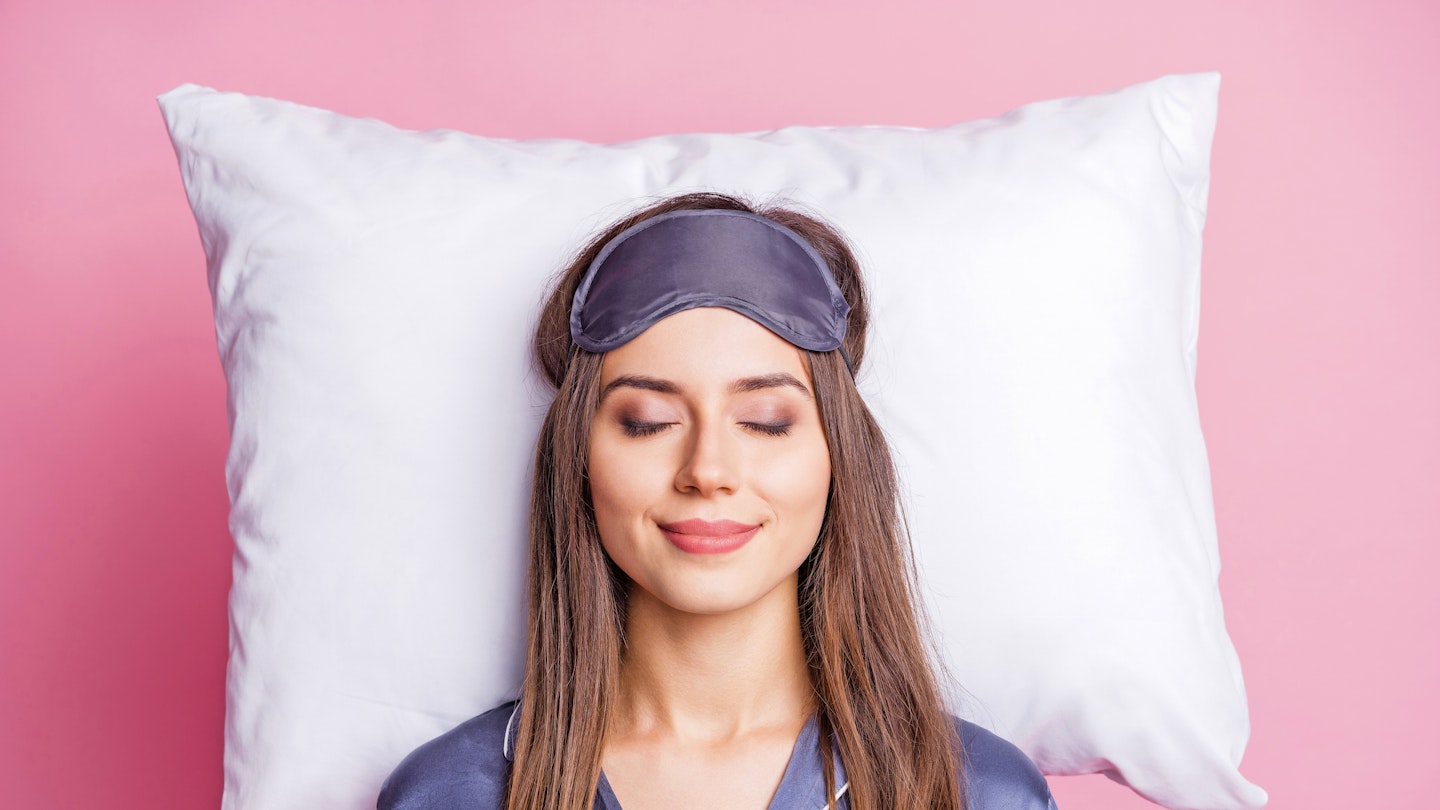We all know the importance of deep, restorative sleep. But how do we know if we’re getting good-quality sleep and how can we improve it if we’re not? Here, Dr Maja Schaedel, clinical psychologist and co-founder of the Good Sleep Clinic, explores the night-time habits stopping us from getting good sleep…
Secret habit: You’re grinding your teeth
Did you know roughly 10 per cent of us grind our teeth at night? Over time this can lead to facial pain, headaches and even wear our teeth down.
Dr Schaedel says: ‘One of the biggest causes of teeth-grinding is stress and anxiety. Exercising is a brilliant way to get rid of built-up tension in the day, as is using a technique like progressive muscle relaxation, where you clench and unclench different muscle groups in your body to help you unwind.
‘Making a “worry list” and allocating time to address it may also help stop your brain — and consequently, your jaw — going into overdrive each night. Failing that, your dentist may be able to offer you a night-time mouth guard.’
Secret habit: You’re snoring
One minute you’re sleeping soundly, the next you’ve got an elbow in the ribs from your other half.
Dr Schaedel says: ‘Snoring is incredibly common, but if it’s disturbing your sleep — or someone else’s — try sleeping on your side and elevating the head of your bed by a few centimetres to help open your airways. Snoring can also be a sign of sleep apnoea — where your breathing stops and starts while you sleep — as is waking up gasping for breath.
If you’re concerned, consult your GP. A CPAP machine can help improve your breathing.’
Secret habit: You’re waking early
How often do you find yourself waking in the early hours? Dr Schaedel says if it’s happening regularly, you may not have enough ‘sleep pressure’.
She explains: ‘When our brain uses energy to process information, it gives off a bi-product called adenosine. The build-up of this chemical creates “sleep pressure”, which helps us to fall asleep and stay asleep throughout the night. But when we don’t have enough pressure, we often wake too soon. To increase sleep pressure, we need to exercise and do tasks that are cognitively demanding, such as concentrating on work, studying or socialising.
‘If you do wake up, remind yourself that you’ve already had your most restorative sleep during the first part of the night.’
Secret habit: You’re sweating
Most people sweat a bit in the night. But if you wake regularly with drenched bedclothes, yet your bedroom’s cool, it might be something else.
Dr Schaedel says: ‘One of the most common causes of sweating at night is the menopause. In fact, 40 to 60 per cent of women report difficulties staying asleep during the perimenopause and menopause.
‘Open windows and use a fan to ensure your bedroom is as cool as possible. Keep a glass
of cold water and a change of clothes nearby in case you need to change. If you’re really struggling to cool down, have a hot shower. It sounds counter-intuitive, but this is one of the most effective ways to cool your body temperature quickly.’
Secret habit: You’re restless
It’s one thing feeling shattered before you go to bed, but another if you wake each morning never feeling refreshed.
Dr Schaedel says: ‘If your limbs twitch or jerk regularly in the night, you might have restless legs syndrome. Speak to your GP for advice.’
Secret habit: You’re having nightmares
Everyone has nightmares every now and then, but if you’re regularly having horrible dreams, don’t ignore them.
Dr Schaedel says: ‘Nightmares can indicate stress or anxiety. They can also be symptomatic of post-traumatic stress disorder (PTSD). Someone with PTSD often relives a traumatic event through nightmares.
‘Before going to bed, do breathing exercises so you’re nice and relaxed. Make sure your room isn’t too warm and stuffy, as being too hot can lead to less restful sleep and increase the likelihood of vivid dreams.
‘However, if nightmares remain, don’t keep suffering. Speak to your GP, who should be able to refer you to a sleep clinic for help.’
Edited by Stephanie May
● For more info or advice, please visit goodsleep.clinic

